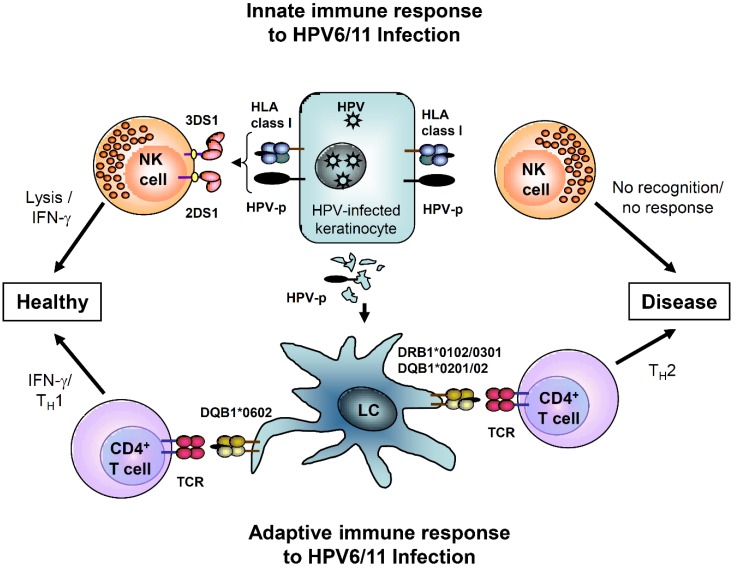Figure 1.
Immune Responses Support Persistent HPV 6/11 infection that Causes Human Papillomaviruses (HPV)-induced Disease. Both the innate and adaptive immune responses to HPV infection are polarized away from effective TH1-like responses in genital warts and respiratory papillomas, leading to persistent HPV-induced disease. The innate immune response to HPV infection is normally mediated by Natural Killer (NK) cell recognition of activating and inhibited killer cell immunogloublin-like receptor (KIR) gene products that recognize reduced human leukocyte antigen (HLA) class I molecules on HPV-infected keratinocytes. Lack of recognition, due to activating haplotype biasing in recurrent respiratory papillomatosis (RRP), results in an infective innate immune response. The adaptive immune response is also polarized by the failure of Langerhans cells to mature and then present peptides to T-cells, which results in altered/impaired Langerhans cell (LC) signaling that results in a TH2 T-cell bias, which when combined with the lack of NK activity, results in persistent HPV-induced disease. Figure adapted from [14].

